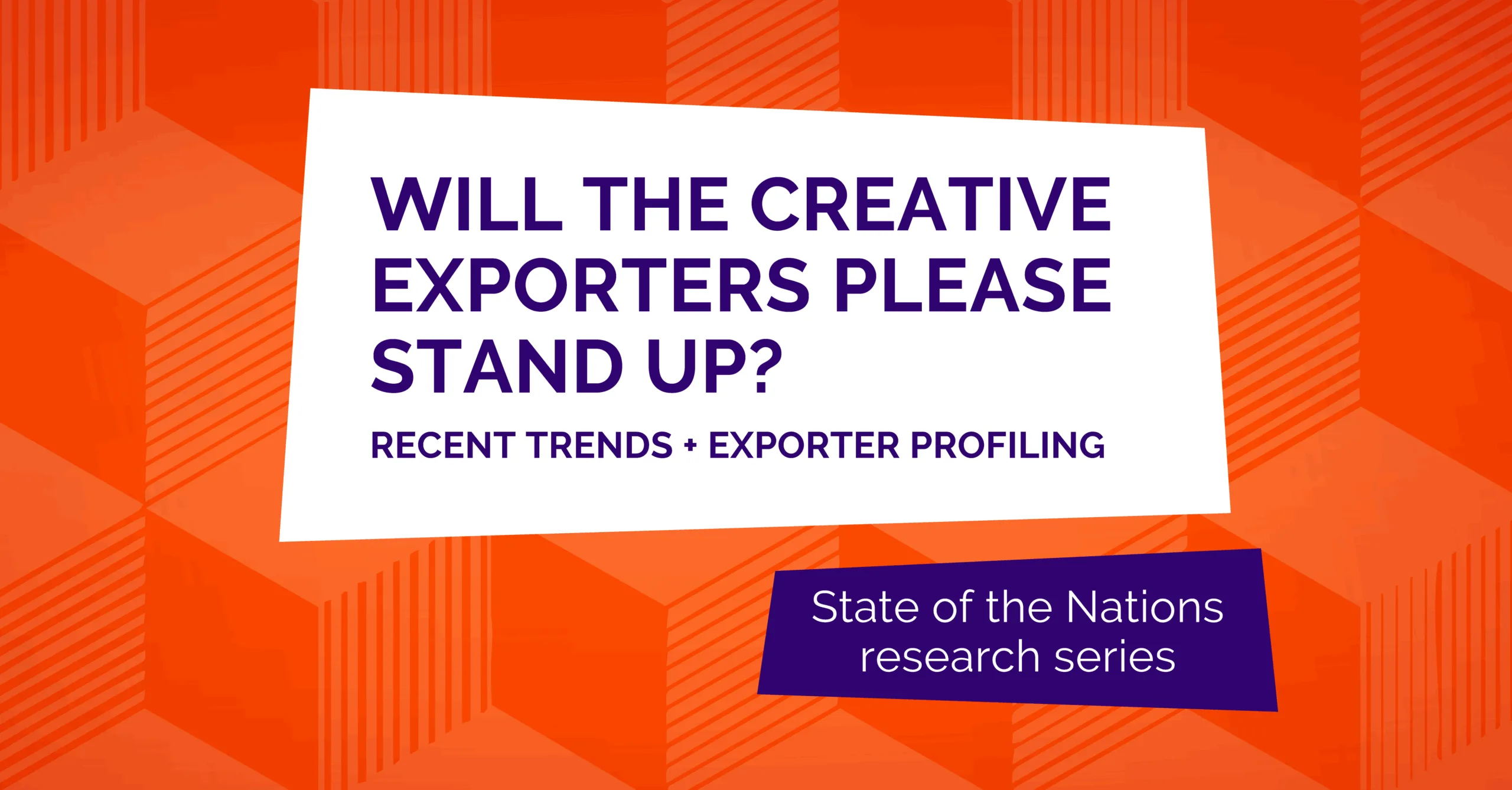We analyse the Spending Review and the extent our recommendations feature in today’s announcement
The creative industries – from film, to fashion, art, advertising, games, design and more – are a crucial part of the UK, generating £111.7bn in gross value added (GVA) for the economy, employing 2.1 million people and contributing greatly to the country’s status internationally. However, the sector faces significant challenges, not only due to the COVID-19 pandemic but also long-standing issues stemming from the small scale of many of its businesses, skills shortages, and a lack of diversity.
In the run up to the Comprehensive Spending Review, we offered three recommendations from our recent research:
- Investment in artificial intelligence (AI) for the creative industries
- A UK wide programme of investment to rebuild the sector
- A broader definition of research and development (R&D) in the creative industries
Here we analyse the Spending Review and the extent to which – awaiting further detail – we believe it responds to these evidence-led recommendations.
1. Investment in artificial intelligence (AI) for the creative industries
Our recent research confirmed the UK’s strengths in both the creative industries and in AI. It has also shown that the levels of AI research with direct applications to the industry are at initial stages, although advanced relative to other countries. This suggests there is an important market opportunity that public investment can help unlock. As a result, in the run up to the Spending Review we recommended that the Government fund an AI and Creative Industries Centre, a £10 million five-year innovation centre to provide:
- Training and skill development in AI for the creative industries
- A gateway to research and development (R&D) in AI for the creative industries
- Commercial development for AI creative startups
We have since published an open letter in support of the centre signed by leaders in the creative and tech sectors including Google, Double Negative, WPP and the National Gallery. In addition, two leading international centres of academic excellence in AI and the creative industries have published their own open letters of support – University of Arts London and the University of Edinburgh.
The Spending Review announced “£45 million for programmes to drive growth through digital technologies and data, while improving online safety and security”.
We call on HM Treasury, the Department for Digital, Culture, Media and Sport (DCMS) and UK Research and Innovation (UKRI) to prioritise the Centre for AI and the creative industries within this investment.
2. Devise a UK-wide investment programme to rebuild the creative industries
Our research has shown that there was an accelerated trend towards greater concentration of UK creative businesses being located in London following the global financial crisis in 2008. As attention turns to recovery from the effects of COVID-19, prioritising investment across the country is more important than ever. Only this week we published research demonstrating the opportunities in investing in small clusters of creative businesses across the UK.
Prior to the Spending Review, we called on the government to ensure all regional interventions across the country were accessible to the creative industries, including the Shared Prosperity Fund. We also recommended that the Scale-Up programme be continued as part of the Treasury’s departmental settlement with DCMS, to help protect and grow creative industries clusters and microclusters based across the UK.
As we are still awaiting detail about the Shared Prosperity Fund and how DCMS will invest their budget, this recommendation stands.
Today the Chancellor also announced a new Levelling Up Fund worth £4 billion for England, that will attract up to £0.8 billion funding for Scotland, Wales and Northern Ireland. This will “invest in local infrastructure that has a visible impact on people and their communities and will support economic recovery”. It was highlighted by the Chancellor that several areas key to the creative industries’ success could be included in bids for up to £20 million (or more by exception) including “regenerating eyesores, upgrading town centres and community infrastructure, and local arts and culture”.
We are pleased that the announcement of this new fund references the importance of arts, culture, design and architecture in place-based development, and we await further details of the fund which will be announced in the New Year.
3. Innovation-led recovery: a broader definition for R&D used in tax incentives
In the run up to the 2019 general election, the PEC and Nesta recommended that the government should use a wider definition of R&D in its tax-break incentives so that they incentivise innovation in high-growth sectors like the creative industries not just manufacturing. In July this year the Treasury announced a review of the R&D definitions.
The COVID-19 crisis has caused havoc for the operating models for many parts of the creative industries, so investing in innovation to help assist its recovery is a priority.
The definition of R&D used by HM Revenue and Customs (HMRC) for the purpose of tax relief excludes the arts, humanities and social sciences. This is in contrast to many other countries like France, Italy, Demark, Czech Republic, Brazil and Korea. This means that R&D in the creative industries which is more reliant on the arts, humanities and social sciences is not recognised and often fails to qualify for R&D tax-relief.
Today’s announcement of the investment of over £15 billion for R&D next year makes a definitional review all the more important and timely. We again recommend that R&D definitions should be extended to ensure that they are not narrower than other competitors, and do not neglect R&D in our world-leading creative industries, which have been hard hit by COVID-19.
Image by Samuel Zeller
Related News and Press
Bolster business and financial support for creative industries micro firms to achieve UK innovation and growth ambitions
New Creative PEC research suggests creative industries micro firms have a vital role to play in driv…
Back the creative industries to grow the economy, says new research showing creative firms are more likely to be innovators and exporters
New research finds a higher share of UK creative MSMEs are exporters compared with the rest of the e…


